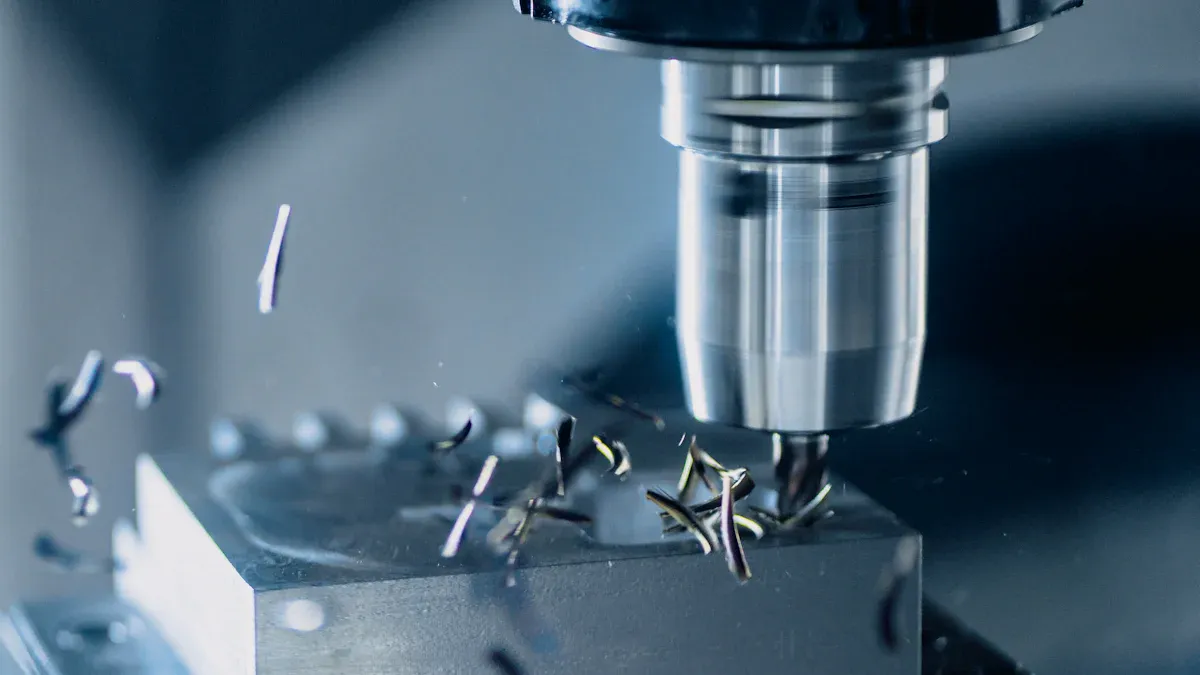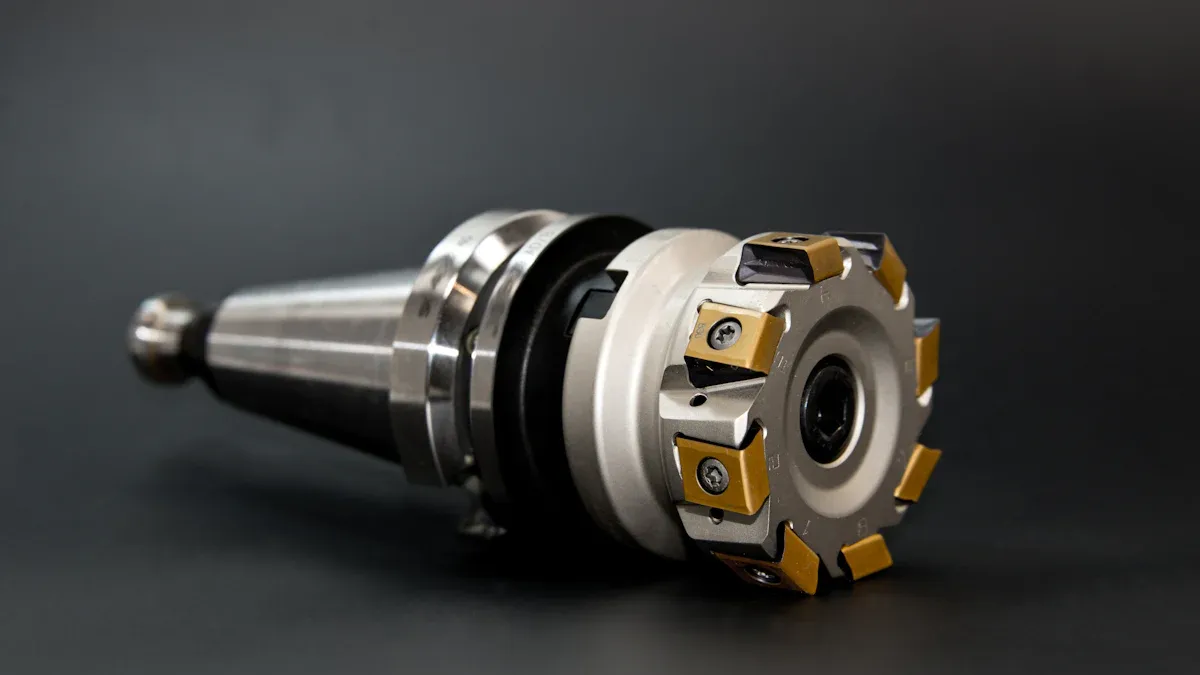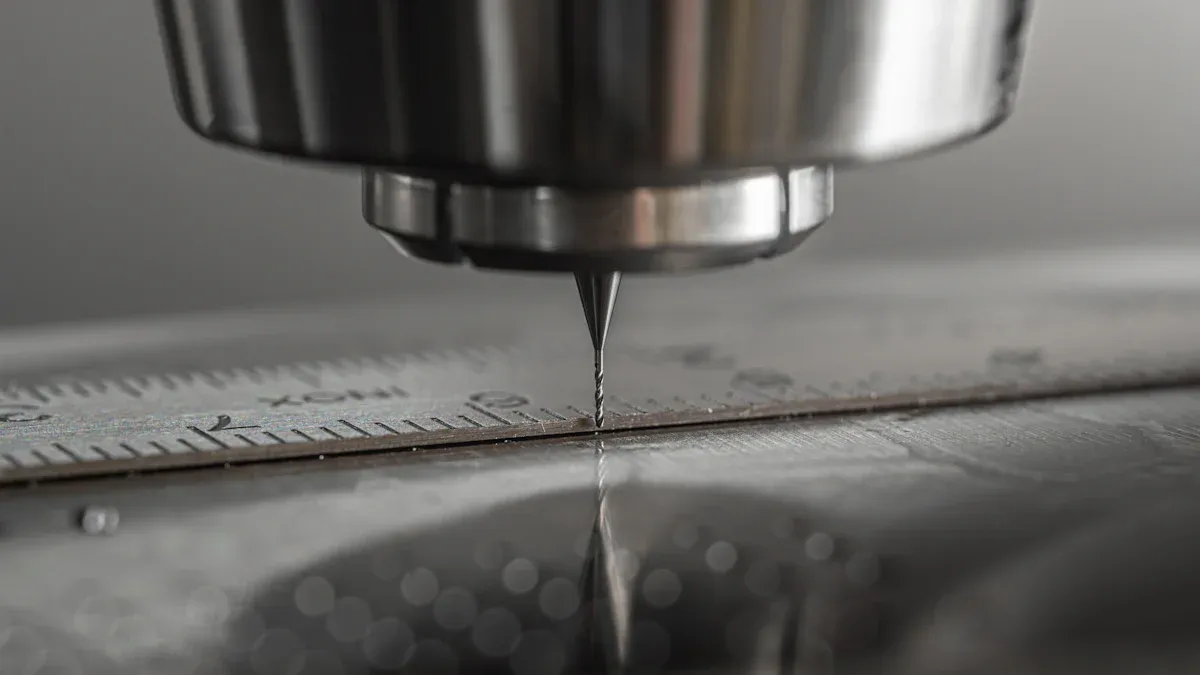Why CNC Machining is Essential for Creating High-Performance, Custom RC Hobby Parts

CNC machining has revolutionized how you create RC hobby parts. It ensures precision and durability, making your custom RC car parts lightweight yet strong. This technology lets you design parts that boost speed, stability, and aesthetics. With CNC, you can achieve unmatched customization, giving your RC vehicles a competitive edge in performance and reliability.
Key Takeaways
CNC machining makes parts exact, so they fit and work well.
This method helps hobbyists make special parts for their RC cars.
Strong materials like aluminum and carbon fiber last long and are light, making RC cars better.
Understanding CNC Machining and Its Relevance to RC Hobbyists
What is CNC Machining?
CNC machining is a manufacturing process that uses computer-controlled tools to create precise parts. It all starts with a digital design, often made using CAD software. This design is then converted into G-code, which tells the CNC milling machine how to move and shape the material. The process is automated, so once the setup is complete, the machine does the work with minimal human intervention.
Here’s a quick breakdown of the CNC machining process:
Create a CAD model of the part.
Convert the design into G-code using CAM software.
Set up the CNC machine with the material and tools.
Execute operations like cutting, drilling, or milling.
Inspect the finished part for quality.
This process ensures precision and accuracy, making it ideal for creating custom RC car parts that fit perfectly and perform reliably.
Why Precision Matters for RC Hobby Parts
When it comes to RC vehicles, every detail counts. CNC machining delivers parts with tight tolerances, ensuring they fit together seamlessly. This precision reduces wear and tear, which means your RC car performs better and lasts longer. For example, CNC-machined suspension components or gearboxes can handle intense racing conditions without compromising performance.
Using materials like aluminum or carbon fiber, CNC machines create lightweight yet durable parts. This combination of strength and precision directly impacts speed, stability, and acceleration, giving your RC vehicle a competitive edge.
Customization Potential for Riders and Hobbyists
CNC machining offers unmatched customization potential for riders and hobbyists. You can design parts tailored to your specific RC model, whether it’s a car, boat, or aircraft. Want a unique chassis frame or custom body elements? CNC machines can handle intricate designs and even engravings.
This flexibility allows you to fine-tune your RC vehicle for speed, stability, or aesthetics. Whether you’re racing competitively or just enjoying the hobby, CNC machining lets you create components that reflect your style and meet your performance needs.
Key Benefits of CNC Machining for RC Hobby Parts

Precision and Consistency in Manufacturing
When you’re building RC vehicles, precision isn’t just a luxury—it’s a necessity. The CNC machining process ensures every part is made with exact measurements, so they fit together perfectly. This level of accuracy minimizes variation, which means your RC hobby parts will perform consistently every time.
Here’s why CNC machining stands out:
It creates uniform parts with tight tolerances, ensuring reliability.
Advanced CNC milling machines deliver excellent surface finishes, improving the overall quality of your components.
The process doesn’t rely on operator skill, so every part is identical, no matter how many you produce.
This consistency is crucial for RC vehicles, where even the smallest misalignment can affect performance. Whether you’re crafting custom rc car parts or intricate suspension components, CNC machining guarantees precision you can count on.
Durability and Material Versatility
RC vehicles face a lot of wear and tear, especially during competitive racing or off-road adventures. CNC machining uses materials like aluminum, carbon fiber, and titanium to create parts that are both lightweight and strong. These materials enhance performance while ensuring increased durability and strength.
Here’s a quick comparison of popular materials used in CNC machining:
Material | Characteristics | Advantages |
|---|---|---|
Aluminum | Lightweight, corrosion-resistant | Cost-effective, versatile |
Carbon Fiber | High strength-to-weight ratio | Lightweight, durable |
Titanium | Excellent corrosion resistance | Withstands high temperatures |
By choosing the right material, you can reduce wear and tear on your RC parts, extending their lifespan. For example, CNC aluminum parts are perfect for lightweight builds, while carbon fiber components offer unmatched durability for high-performance applications.
Enhanced Customization for Unique RC Builds
CNC machining opens up endless possibilities for customization. You can design unique components tailored to your RC vehicle’s needs, whether it’s a lightweight chassis or precision-engineered wheels. The CNC machining process allows for intricate designs that other methods can’t achieve, like shock absorber platings or multi-material compositions.
Here are some examples of what you can create:
Custom body elements with detailed engravings.
Lightweight and tough chassis frames.
Perfectly aligned hubs for precision-engineered wheels.
This level of customization lets you build RC vehicles that stand out in both performance and style. Whether you’re a hobbyist or a competitive racer, CNC machining gives you the tools to bring your vision to life.
Types of RC Parts Created with CNC Machining

Frames and Chassis for RC Vehicles
Frames and chassis are the backbone of any RC vehicle. CNC machining allows you to create lightweight yet durable chassis frames that enhance your vehicle's performance. With this technology, you can design intricate suspension elements like shock towers and arms, ensuring better handling and stability. CNC also produces roll wheels with perfectly aligned hubs, engine mounts for precise alignment, and drivetrain parts for efficient power transmission.
CNC machining doesn’t just make parts—it transforms your RC vehicle. By using tools like mills for cutting and presses for bending, you can achieve complex geometries that improve structural integrity and handling. Whether you’re building a custom rc car or upgrading an existing one, CNC machining ensures every component fits perfectly and performs reliably.
Internal Components Like Gears and Linkages
When it comes to internal components, precision is everything. CNC machining delivers gears, linkages, and transmission parts with unmatched accuracy. This precision ensures your RC vehicle operates smoothly, whether you’re racing or tackling off-road terrain. You can also customize these components to optimize speed, stability, and acceleration.
Here’s what CNC machining offers for internal parts:
High accuracy for seamless integration.
Lightweight designs for better maneuverability.
Complex geometries for intricate gearboxes and linkages.
With CNC, you can create components that not only enhance performance but also extend the lifespan of your RC vehicle.
Specialized Materials: Aluminum, Titanium, and Carbon Fiber
The materials you choose for your RC hobby parts can make or break your build. CNC machining supports specialized materials like aluminum, titanium, and carbon fiber, each offering unique advantages. Aluminum provides sturdiness and corrosion resistance, while titanium withstands high temperatures. Carbon fiber, with its excellent strength-to-weight ratio, is perfect for high-performance builds.
These materials don’t just improve strength—they also allow for customization. You can tailor your RC vehicle to meet specific needs, whether you’re aiming for speed, durability, or aesthetics. Plus, CNC machining ensures faster production time without compromising quality, so you can get back to enjoying your radio-controlled cars sooner.
CNC Machining vs. Other Manufacturing Methods
CNC Machining vs. 3D Printing
When comparing CNC machining to 3D printing, the differences in their processes and capabilities stand out. CNC machining is subtractive, meaning it cuts away material from a solid block to create parts. On the other hand, 3D printing is additive, building parts layer by layer. This fundamental difference impacts the materials you can use and the types of components you can create.
Materials Used: CNC machining works with metals like aluminum and titanium, as well as plastics and carbon fiber. 3D printing, however, often uses liquid resin or nylon powder.
Complexity: 3D printing excels at creating intricate geometries, such as hollow structures. CNC machining, though, offers unmatched precision for parts requiring tight tolerances.
Ease of Use: 3D printing software is beginner-friendly, while CNC programming demands more expertise.
For RC hobbyists, CNC machining ensures safety and reliability, especially for critical components like gears and linkages. It’s the go-to choice when durability and precision matter most.
CNC Machining vs. Injection Molding
Injection molding is another popular manufacturing method, but it’s not always the best option for custom RC parts. While injection molding is great for mass production, CNC machining shines in smaller-scale, on-demand production.
CNC machining doesn’t require special tooling, making it ideal for prototypes and custom parts. This flexibility reduces costs and speeds up production.
Additionally, CNC machining ensures consistent quality across all parts, which is crucial for RC enthusiasts. You can create specialized components like custom engine covers or lightweight carbon fiber frames without compromising precision or strength.
Why CNC Machining is Superior for Custom RC Car Parts
CNC machining stands out as the ultimate tool for creating custom RC car parts. Here’s why:
It delivers precision and accuracy, ensuring every part fits perfectly.
You can customize components to meet your specific needs, whether it’s for speed, durability, or aesthetics.
CNC machining supports advanced materials like carbon fiber and titanium, which enhance strength and reduce weight.
The process allows for intricate designs, perfect for complex components like gearboxes.
Whether you’re building a high-performance RC car or upgrading your current setup, CNC machining gives you the control and customization you need to succeed.
CNC machining is your go-to solution for creating high-performance rc hobby parts. It offers unmatched precision, durability, and customization, ensuring your RC vehicles perform at their best. With CNC, you can craft lightweight, durable components tailored to your needs. Explore CNC technology today and unlock endless possibilities for your RC projects.
FAQ
What makes CNC machining better than traditional methods for RC parts?
CNC machining offers unmatched precision and customization. You can create parts with tight tolerances and unique designs that traditional methods can't achieve.
Can CNC machining handle small-scale production for custom RC parts?
Absolutely! CNC machining is perfect for small-scale production. It doesn't require expensive molds, so you can create custom parts quickly and cost-effectively.
Which materials work best for CNC-machined RC parts?
Materials like aluminum, titanium, and carbon fiber are ideal. They provide strength, durability, and lightweight properties, making them perfect for high-performance RC builds.
Tip: Choose materials based on your RC vehicle's needs—aluminum for cost-effectiveness, carbon fiber for lightweight builds, or titanium for extreme durability.
See Also
How Small Parts CNC Enhances Custom R/C Hobby Creations
Achieving Precision Parts Production Through CNC Machining Mastery
CNC Turning Techniques for Creating Precision RC Upgrade Components
Streamlined CNC Machining Solutions for High-Quality Manufacturing
The Revolution of CNC Machining in Precision Manufacturing Processes
About US
Follow Us
Your prototype holds unparalleled significance, and we deeply value its uniqueness. Collaborating with you during the preparation phase for running your prototype or parts is a commitment we gladly embrace. Whether it's a single part or a complex assembly, we are dedicated to selecting the optimal tools and pathways to bring your envisioned product to life.
At Precision Fab CNC Machining, we specialize in producing parts for prototypes, short runs, and high-volume production. Our prototyping machine capabilities extend across metal, plastic, and wood machining, with welding fabrication services available to complement and finalize your prototype if required.
Address
Address: Room320 10F, Building A,Nanshan international building, Dayawan District, Huizhou, Guangdong, 516001 China
Contacts
billy@timaycnc.com

